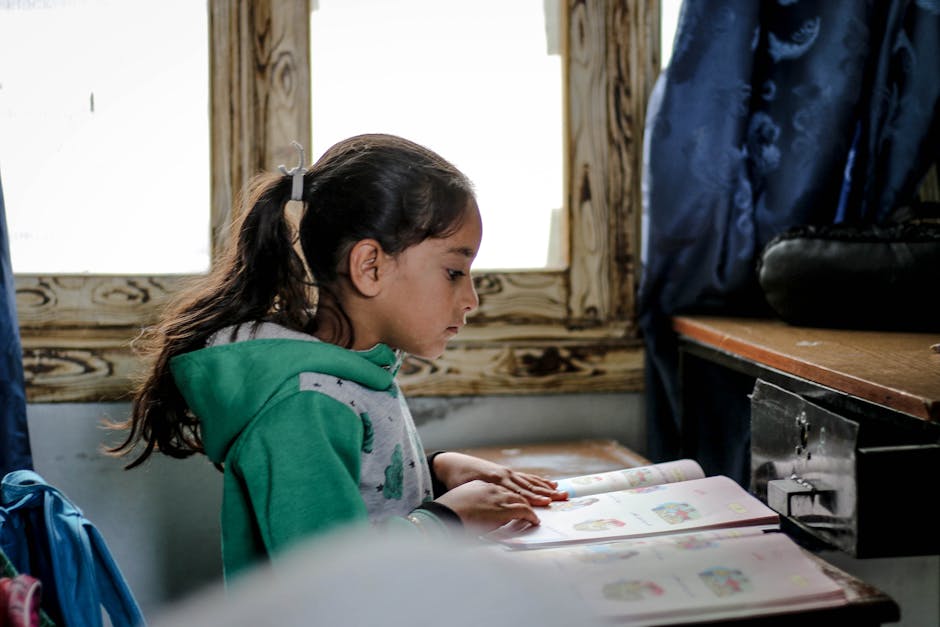The impacts of Lawlessness and bigotry on the development of the nation
What happens when lawlessness and bigotry prevent us from developing? How do we overcome these obstacles?
Lawlessness refers to the lack of adherence to the rule of law, which is the fundamental principle that governs how people are treated in society. This includes things like police brutality and corruption. It also includes things like hate crimes and illegal deportation. All of these things can hurt society as a whole because they erode trust in government and lead to social chaos.
Bigotry refers to the hatred and intolerance of different groups of people. This can take many different forms, from simple discrimination to violence and terrorism. When it is unchecked, bigotry can have a devastating impact on society as a whole. It can lead to division and conflict, which in turn slows down economic growth and diminishes social stability.
The rule of law and its impact on society
Development is essential for any society to thrive. Without proper development, a community can fall into decline and eventually become a lawless wasteland. The rule of law is the bedrock of civil society, and without it, communities can quickly descend into chaos.
The rule of law provides individuals with equal rights and protects them from government abuse. It also encourages businesses to grow and invest in their communities by establishing clear anticipations about how regulations will be enforced. The rule of law supports economic growth and social stability.
Unfortunately, rampant lawlessness and bigotry can have devastating consequences on the growth of the nation. In many cases, these factors contribute to social unrest, which leads to instability and poverty. This situation creates an environment that is hostile to business expansion and investment. Consequently, nations that lack a strong rule of law are at a disadvantage when competing for resources and opportunities with other countries.
The rise of bigotry and its impact on the nation
Bigotry has hurt the growth of the nation in many African countries, especially in the political arena where the majority takes it all in terms of job positions and resources. Oneness and brotherhood are one of the most important aspects of a functioning society, and when it is undermined, it creates chaos and instability. This has been especially true in recent years, as Kenya has seen an increase in bigotry and division in the political atmosphere.

The importance of upholding the rule of law
Rule of law is one of the foundations upon which society can stand. Without it, anarchy and chaos can reign, leading to social and economic regression. In recent years, Kenya has seen an increase in lawlessness--a trend that is undermining the nation's stability. This unchecked misconduct has had damaging effects on both the economy and public trust. Bigotry and lawlessness are two primary factors contributing to this crisis.
There is no doubt that bigotry has played a significant role in promoting lawlessness throughout Kenyan history. From the days of slavery to present-day instances of discrimination against minorities and the impoverished have oftentimes engaged in discriminatory impunity. This behavior has fostered distrust among various groups within society, making it difficult for everyone to come together and work toward common goals. It also breeds frustration and anger among those who feel unfairly persecuted. As a result, such individuals are more likely to turn to violence to lawful means to get what they want--including power and prestige. Lawlessness also blurs the lines between what is legal and what is illegal--leading some people to believe that anything goes without consequence. This kind of chaotic environment puts even more pressure on law enforcement resources, further crimping their ability to trimesters citizens from crimesters who operate with complete impunity.
The dangers of bigotry and its impact on the society
The impacts of bigotry are evident in the growth of lawlessness and violence. When people feel that they are not being treated fairly, they may resort to violence or others to get what they want. This can hurt the economy, as businesses may be spooked to invest in areas where there is a high level of lawlessness. Additionally, when people feel that they are not being accepted, they may become discouraged and stop trying to improve their lives. This can lead to a decline in the quality of life for everyone in the nation.
The need for tolerance and understanding
The growth of a diverse nation is dependent upon the acceptance and tolerance of different cultures. Unfortunately, Lawlessness results in increased crime, vandalism, and other forms of social unrest. It also creates barriers to economic progress by preventing businesses from operating freely and providing jobs for legitimate people. This situation is made worse by increasing xenophobia, which leads to discrimination against foreign-born citizens and fosters hostilities between different groups. All these negative outcomes ultimately harm society as a whole.
One way to counteract this destructive trend is for everyone involved to come together and talk about their differences with respect. This type of open dialogue is essential if we want to build a cohesive society that can withstand challenges such as those posed by lawlessness and bigotry. Otherwise, we may see more division and destruction closer to home than we would like.
The importance of education in combating bigotry
Tolerance and understanding are essential pieces of the puzzle in combating bigotry. Without education, people may overlook or even condone violence and intolerance toward others. Additionally, when societies lack a strong legal infrastructure, they become more susceptible to organized crime and other illegal activities. As such, promoting education as part of an anti-bigotry campaign is vital for fostering sustainable growth and prosperity in any nation.
The impact of bigotry and lawlessness on the growth of the nation
The impact of bigotry on the growth of the nation cannot be overstated. It has a direct impact on economic growth, social stability, and international relations. In recent years, we have seen a rise in hate, crimes, and bigotry against minority groups. This has hurt the nation as a whole.
One of the most important ways to combat bigotry is through education. It is important to teach our children about the importance of tolerance and understanding. We must also make sure that they are aware of the impact that hate crimes and bigotry have on the growth of the nation.
Without proper education, many individuals may not be able to understand the impact of lawlessness and bigotry on the growth of the nation. Too often, these attitudes prevail creating divisions that can impede progress. For instance, extremist groups can make recruitment more difficult by attacking those who do not share their specific religious or ideological beliefs. In addition, hate crimes against certain populations - such as immigrants or minorities- can increase when conditions are unstable and law enforcement is scarce. acts perpetrated by people motivated only by prejudice hurt all members of society regardless of race or ethnicity. When enough people in a community adhere to intolerant views, it becomes easier for extremists to gain attention and recruit new followers. This process is often referred to as "the spiral of hate."
Fortunately, education can help to break down these barriers. When people understand the importance of diversity and tolerance, they are more likely to oppose extremist groups and stand up against hate crimes. Furthermore, a well-educated populace is better equipped to identify and address problems before they become serious. This is why it is so important for schools to provide students with the opportunity to learn about the history and impact of lawlessness and bigotry on the growth of the nation. In addition, curricula should emphasize the importance of understanding and respecting different cultures. By doing so, we can help to create a more tolerant society that is better able to face the challenges of tomorrow.
The impact of lawlessness and bigotry on the economy
In an ever-growing and diverse nation such as Kenya, all its citizens need to have a basic understanding of one another's cultures. This understanding can be developed through education, which in turn can help combat any racism or prejudice that may arise from different groups of people. In today's society, where attitudes towards different races, religions, and sexual orientations are changing rapidly and often conflictual,[1] education needs to be a priority too to make sure that all individuals feel welcomed and respected in this country.
Unfortunately, intolerance and bigotry are on the rise in Kenya. There has been an increase in hate crimes targeting various groups of people across the country, and this trend is likely to continue in the coming years. This increase can be partially attributed to the current political climate, which is characterized by lawlessness and division. The instability that has been caused by these events has encouraged people with hateful beliefs to act on them unchecked.
The economy also suffers from the effects of bigotry and lawlessness. In recent years, businesses have been reluctant to expand or invest in certain parts of the country due to the high level of criminal activities. This situation has led to a decline in job opportunities and economic growth in some areas of the country, especially those that are heavily dependent on agriculture or tourism.[2] All Kenyans - no matter what their backgrounds - deserve an opportunity to succeed economically. Efforts must be made to restore law and order to protect the economy and promote growth in all areas of the country.
Education is essential in combating bigotry and promoting understanding and tolerance in Kenya. By encouraging open dialogue and critical thinking, educators can help to create a more tolerant society where all individuals feel welcome and respected.

The role of the media in promoting tolerance and understanding
The media has a tremendous impact on promoting tolerance and understanding. It can play an important role in persuading people of different backgrounds to work together, and it can help to create a more inclusive society. This is especially true in times of crisis when the media can play a significant role in spreading messages of hope and resilience.
Unfortunately, the media also has the potential to influence people negatively. For example, the news media can promote lawless behavior by highlighting examples of crimes that are not always properly investigated or reported. This creates a climate of fear and intimidation, which can lead to prejudice and discrimination against certain groups. In addition, hate speech made by influential figures in the media often results in violence against minorities.
Fortunately, there are also many examples of positive journalism - reporting that promotes tolerance and understanding instead of hatred or bigotry. Such coverage can help to build bridges between communities and set an example for others to follow.
Conclusion
The rule of law and tolerance are essential for the growth of any nation. Bigotry and lawlessness can only lead to division and chaos. Education is key in combating bigotry, and the media has a responsibility to promote understanding and tolerance. Only by working together can we hope to create a world that is just and peaceful for all.

Comments
Post a Comment
Leave Your Comment